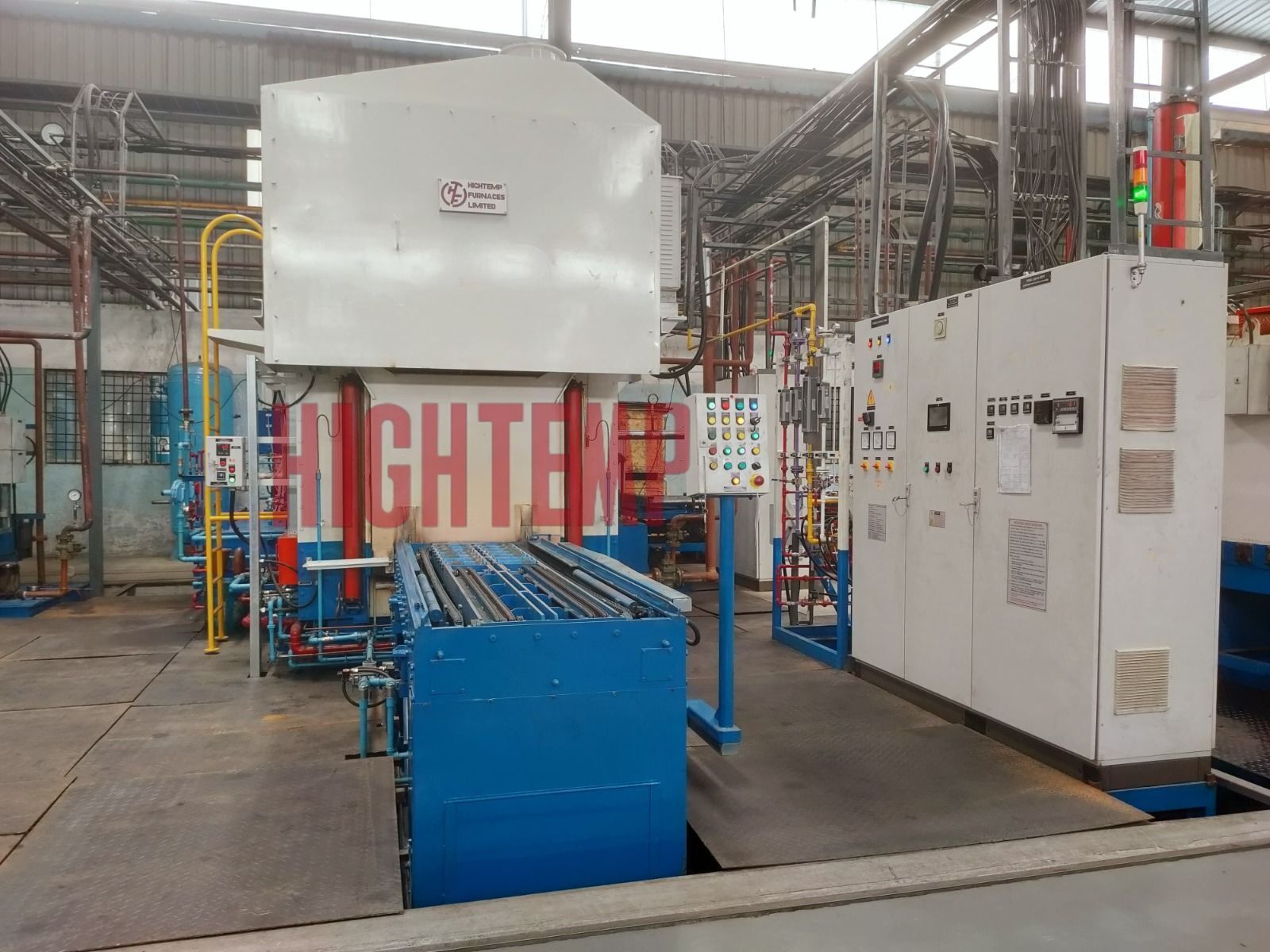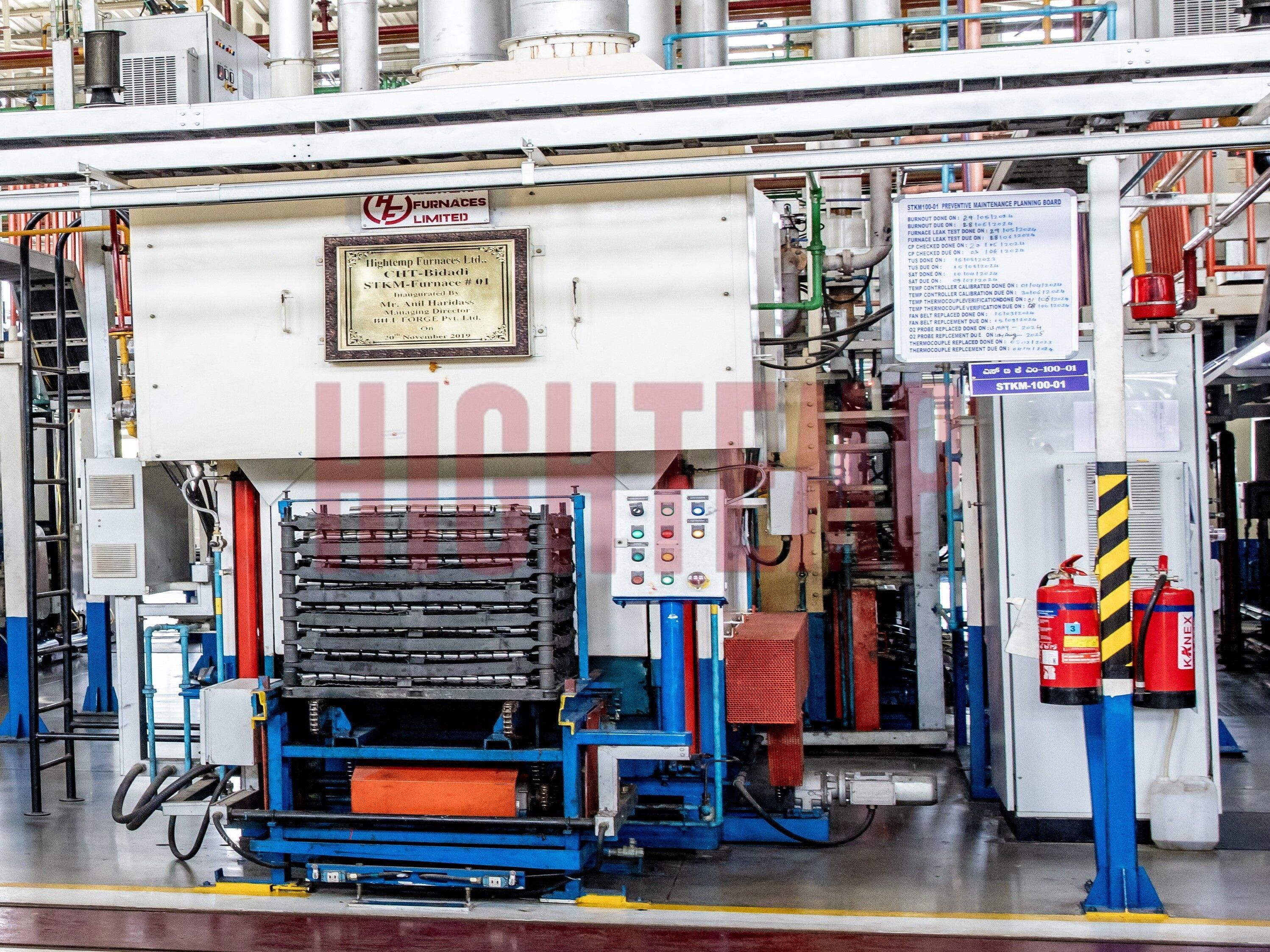- Tempering balances hardness with core toughness.
- Optimized design reduces energy consumption and operational costs.
- Suitable for medium- and high-carbon steels, alloy steels, and low-alloy steels


Carburising in a Sealed Quench Furnace is a highly efficient and controlled process that enhances the surface hardness of low-carbon steel components. By diffusing carbon atoms into the surface, this process creates a hard, wear-resistant outer layer while retaining a tough, ductile core. The sealed quench furnace ensures a precisely controlled carbon-rich atmosphere and uniform heating, resulting in consistent and high-quality results. Widely used in automotive, aerospace, and heavy machinery industries, carburising in a sealed quench furnace delivers superior mechanical performance, extended component life, and reliable results for demanding applications. This furnace can perform other heat treatment processes, including tempering, hardening, carbonitriding, normalizing, nitrocarburizing, nitriding, austempering, neutral hardening, annealing, and bright hardening.


The Sealed Quench Furnace is a high-performance heat treatment system designed for austempering, carburising, and tempering. Ideal for components like gears, shafts, clutch plates, springs, fasteners, and crankshafts, it delivers superior wear resistance, toughness, and fatigue strength. Austempering is a specialized process that transforms steel into an ausferrite microstructure, enhancing toughness, wear resistance, and fatigue strength with minimal distortion. This makes it ideal for components that require superior mechanical performance. This furnace can perform other heat treatment processes, including hardening, carbonitriding, normalizing, nitrocarburizing, nitriding, neutral hardening, annealing, and bright hardening.


The Semi-Continuous Sealed Quench Furnace by HIGHTEMP provides an advanced heat treatment solution for carbonitriding/carburising and tempering, designed to enhance the wear resistance, surface hardness, and toughness of critical components such as gears, shafts, crankshafts, pins, bolts, fasteners, and bearings, and is compatible with a variety of material grades, including Medium- Carbon Steels like EN8, EN9, Alloy Steels such as EN19, EN24, SAE 4140, Low-Alloy Steels like 16MnCr5, 20MnCr5, SAE 8620, and High-Carbon Steels like EN31, making it the ideal choice for industries such as automotive, aerospace, heavy machinery, and precision engineering, where superior performance, durability, and reliability are crucial for high-stress, high-performance applications.


